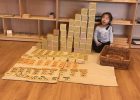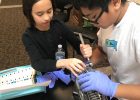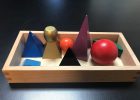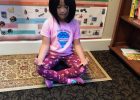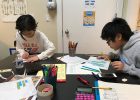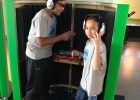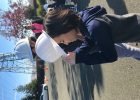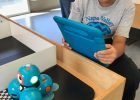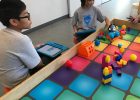Lower Elementary (Grades 1-3)
Montessori education differs from traditional education in the approach to curriculum. The developmental needs, personality, and interests of each child are as important as the content to be mastered.
There is a mix of children ages 6 – 9 years old for our Lower Elementary program (Grades 1-3). The Elementary learning environment is focused on the children’s emerging social skills and provides hands-on learning. The abundant, sequenced Montessori learning materials and small group lessons allow teachers the opportunity to identify individual strengths and needs in order to mentor and coach appropriately. Montessori teachers engage their students in the learning process by teaching them how to organize and take ownership of their work, make choices, and pursue their interests.
Textbooks are not used at the Elementary level. However, the classrooms are filled with enticing learning materials and books that engage the children’s active minds, support their growing skills, and ensure all curricula areas are covered.
Mathematics Curriculum
Quantity, numeral systems, math operations (addition, subtraction, multiplication, division), fractions, money, measurement, geometry and spatial sense, data analysis and probability, patterns, problem solving, functions, and algebra standards are included. Students build on their considerable experience with the decimal system in the Montessori early childhood program. Lower Elementary students use hands-on, sequenced learning materials. The mathematics materials lead the children toward abstraction of math operations and memorization of math facts. Children manipulate and read large numbers at an early age. They are drawn to the immense scope of mathematics. The measurement of time and study of geometry are closely tied to history and culture studies.
Language Arts and Reading Curriculum
Because effective communication skills are essential to success in life, we help children develop their reading, listening, critical thinking, oral and written communication. The Language Arts curriculum includes: phonemic awareness, word recognition and fluency as well as vocabulary and spelling; the reading process including concepts of print, comprehension, monitoring, applications – informational, technical and persuasive text; writing – applications, conventions, research, and communication.
Building on their early childhood experience the phonics program engages students with words and object cards. Children read quality picture books and chapter books to practice fluency and comprehension.
The Montessori language arts curriculum emphasizes grammar and sentence construction at this early age when children are developing their reading and writing skills and have a keen interest in language. The hands-on Montessori grammar materials spark the interest of the children to discover how our language is constructed.
Culture Curriculum
The Montessori culture curriculum encompasses history, social studies, geography, earth science, life science, physical science, botany, zoology, health and the human body. The curriculum begins with the whole universe and utilizes an historical approach. Children study the formation of the universe, the earth and its solar system, the evolution of plants and animals, and the development of civilization. Stories are used to ignite the child’s imagination. Science experiments, the study of geology, history timelines, botany studies, and the animal kingdom all follow.


